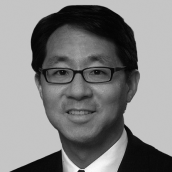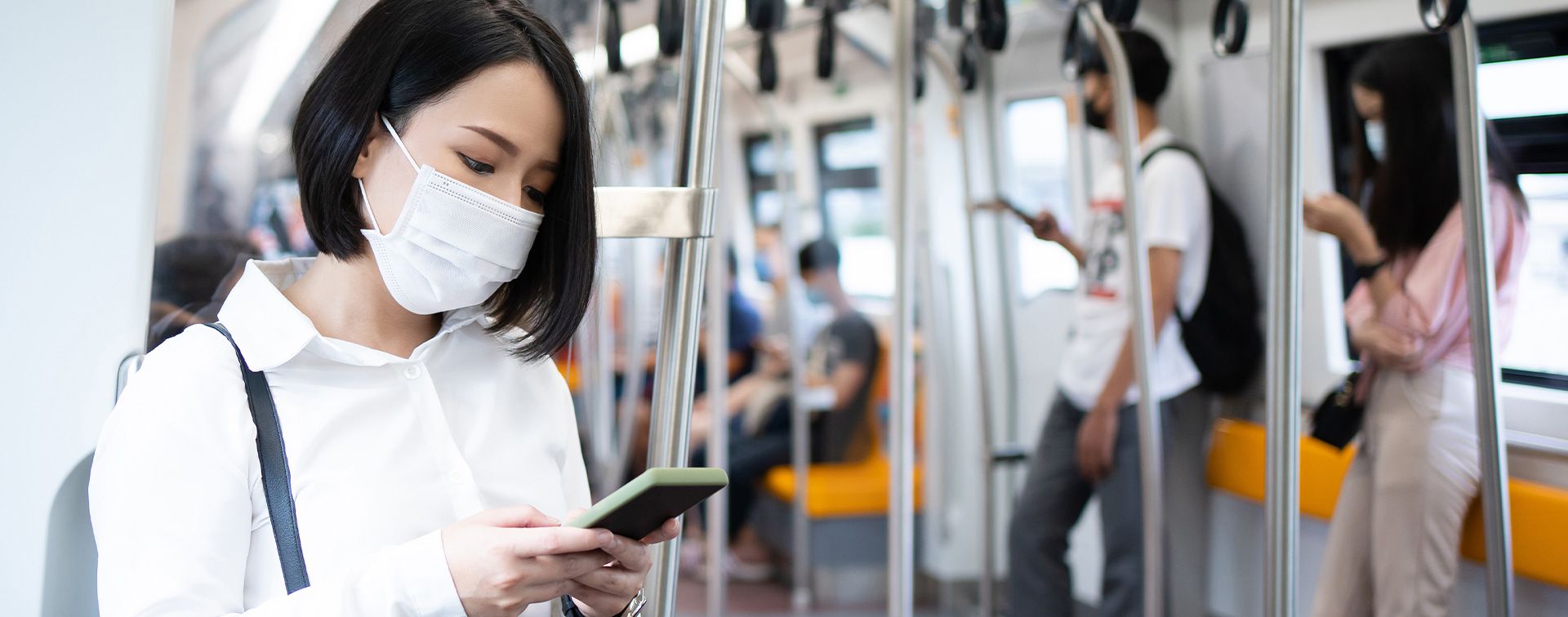
Curtis S. Chin is a former US Ambassador to the Asian Development Bank, the inaugural Asia Fellow of the Milken Institute, and managing director of advisory firm RiverPeak Group, LLC.
How quickly things have changed in the past quarter. Initial green shoots of hope that safe, regional international travel would resume by the summer have withered as spikes in coronavirus cases and worries over the more contagious Delta variant have hit Southeast Asia’s largest economies — Indonesia, Malaysia, the Philippines, Singapore, Thailand, and Vietnam. Across the region, the reality has set in that the pandemic that began in 2020 is far from over.
“Test. Trace. Vaccinate,” said Singapore Prime Minister Lee Hsien Loong in an address to his nation on 31 May, outlining plans to address a worrying resurgence of cases of the novel coronavirus SARS-CoV-2 in the small, wealthy city-state.
“These are the 3 things that we have to do more, and do faster, in the next phase of the fight against COVID-19,” Lee also Tweeted and added, “In the new normal, we will learn to carry on with the virus in our midst.”
In the near-term, however, in Singapore and across Southeast Asia, the on-the-ground situation remains far from normal.
Following the identification of new cases of community spread of the coronavirus, Singapore put into effect a range of ‘Phase 2: Heightened Alert’ restrictions from mid-May to mid-June. These included ending dining-in at all food and beverage establishments including hawker centers and food courts, limiting social gatherings to two people, and making work-from-home the default for all workplaces. A gradual return to ‘Phase 3: Heightened Alert’ restrictions continues.

For business and other travelers, including those exploring residence- and citizenship-by-investment programs, this new reality remains one of limited mobility and connectivity.
This was underscored by the announcement in mid-May of another push back to the start date of a long-anticipated and much delayed Hong Kong and Singapore air travel bubble. The arrangement, which would have allowed travelers moving between the two financial and investment hubs to skip quarantine requirements, was due to have commenced on 26 May after the initial launch date in November 2020 was postponed.
By late June, recognizing that extended quarantines and lockdowns and their economic consequences could prove unsustainable for a battle-weary public, the co-chairs of Singapore’s Covid-19 multi-ministry task force — Trade and Industry Minister Gan Kim Yong, Finance Minister Lawrence Wong, and Health Minister Ong Ye Kung — announced plans for a road map to transit to a new normal of “living with Covid-19”. The broad plan to be implemented over the coming months will encompass speedier delivery of vaccines, easier testing, improved treatments, and a reliance on Singaporeans’ commitment to collective, social responsibility. The result, in time, would be not the eradication of Covid-19 but the turning of the pandemic into something far less threatening, like influenza or chickenpox, allowing Singaporeans to get on with their lives.
Singapore is far from alone among the 10 member states of the Association of Southeast Asian Nations (ASEAN) to see worsening numbers and growing concerns over more easily transmissible coronavirus variants at mid-year. Nations large and small, rich and poor — including Malaysia, which has the third-highest GDP per capita in the region after wealthy, oil-rich Brunei and the city-state of Singapore — are suffering the same fate.
Indonesia — Southeast Asia’s largest nation by economy and population and the world’s largest Muslim-majority nation — saw a spike in Covid-19 cases following significant non-compliance with travel bans and public health measures during Eid al-Fitr celebrations in early May. The Indonesian government in turn banned, for the second time, travel for the Hajj pilgrimage owing to concerns over the pandemic. In late June, the Red Cross warned that Indonesia was “on edge of catastrophe” as a Covid-19 lockdown loomed amid fears that a surge in coronavirus infections related to the Delta variant would overwhelm the healthcare system. And in July, Indonesia launched emergency measures aimed at controlling its worst coronavirus outbreaks since the start of the pandemic, with curbs scheduled to run until at least 20 July.
In Malaysia, Covid-19 cases alarmingly reached record highs in late May and the nation went into total lockdown at the start of June. By the end of June, the government had announced that the lockdown would be extended indefinitely, with only essential manufacturing and social services allowed to operate, and shopping malls, schools, and public parks closed. People’s movements are also restricted, and journeys between states and districts are banned. .
And in the Philippines, which has to date seen the second-highest number of Covid-19 cases and deaths in Southeast Asia, next to Indonesia, President Rodrigo Duterte prolonged partial coronavirus curbs in the capital city of Manila and nearby provinces until mid-July. The nation’s ongoing mass vaccination program also continues to face supply, logistical, and take-up challenges.
Nations that took understandable pride in 2020 for containing the coronavirus, including Thailand and Vietnam, now face new waves of Covid-19 cases. In Vietnam, early June saw new social distancing restrictions put in place in the commercial hub of Ho Chi Minh City, and the nation continues to struggle to secure vaccine doses despite launching a USD 1.1 billion vaccine fund.
“Vietnam is now officially entering the pandemic”, wrote Dr. Tran Van Phuc, a doctor who frequently posts about the virus, according to a New York Times report. “The next 12 months will be the most difficult in controlling the number of infections so as not to overwhelm the health system and limit the number of deaths”, Dr. Phuc posted on Facebook.
And in both Thailand and Vietnam, business chambers and long-time foreign residents are among organizations and individuals expressing concern about slow vaccination program rollouts and worries over healthcare capacity. Record numbers of cases and deaths reported in Thailand have even led some USA citizens to appeal to their government for vaccines following a move by China to vaccinate its own citizens resident in Thailand.
By the end of June, Thailand had reimposed Covid-19 restrictions on restaurants, construction sites and gatherings in Bangkok and its suburbs as the government tried to contain a wave of coronavirus cases.
In a bit of good news, at the start of July Thailand also embarked on an ambitious plan to breathe new life into its tourism industry by opening Phuket to fully vaccinated foreigners from countries deemed at lower risk of Covid-19.
Halfway through the year, the diverse nations that make up Southeast Asia continue to face pressing challenges and policy choices — especially those without the resources of a wealthy Brunei or Singapore. Laos and Cambodia saw the emergence of community transmissions, with even low numbers of cases burdening under-resourced healthcare systems. And in Myanmar, a Covid-19 outbreak has hit a public health system already shattered by this year’s military coup. By late June, Myanmar was reporting record new numbers of Covid-19 cases.
Early in the pandemic there was hope that ASEAN would play a critical, central role in assisting individual member states with fighting the coronavirus (Thailand was after all the first nation outside of China to report a confirmed Covid-19 case). That has yet to happen as each nation’s leadership has focused first and foremost on its own citizens — a reality not just in Southeast Asia, but also in many nations around the world as concerns over more contagious variants grow.
Southeast Asia also has offered up an example that for safe regional and global travel and mobility to return and a new normal of living with Covid-19 to emerge in any nation, the spread of the coronavirus must be fully addressed in every nation. And that, as Singapore’s prime minister noted, certainly requires the continued expansion of testing, tracing, and vaccinating. It must also include greater capacity building, communication, cooperation, and civic responsibility.
References
“(Updated 18 Jun 2021) Gradual Re-Opening to Phase 3 (Heightened Alert) from 14 June 2021.” MCI - Gov.SG. Government of Singapore. Accessed July 1, 2021.
AFP. “Thailand to Reimpose COVID-19 Curbs to Contain Outbreak.” Channelnewsasia.com. Mediacorp, June 27, 2021.
“As New COVID Wave Hits Myanmar, Daily Cases Soar.” The Irrawaddy. The Irrawaddy, June 29, 2021.
Dermawan, R. “At a Time of Crisis, ASEAN Centrality Really Matters.” The Diplomat. Diplomat Media INC., April 17, 2020.
“FAQ: Singapore's Phase 2 (Heightened Alert).” Yahoo News. Verizon Media, May 15, 2021.
“Indonesia Cancels Hajj Again Amid Concerns over COVID.” Al Jazeera. Al Jazeera Media Network, June 3, 2021.
Jiao, C, and Aditya, A. “Asia’s COVID Wave Hits Indonesia as New Strains Grow: Chart.” Bloomberg. Bloomberg L.P., May 31, 2021.
Kendall, D. “Americans Plead for Vaccines as Top Us Diplomat Visits.” Bangkok Post. Bangkok Post Group, June 2, 2021.
Kyodo News. “Malaysia Extends Covid-19 Lockdown Indefinitely.” bangkokpost.com. Bangkok Post Public Company Limited, June 28, 2021.
Latiff, R, and Ananthalakshmi, A. “Malaysia PM Orders ‘Total Lockdown’ Amid COVID-19 Surge.” Reuters. Thompson Reuters, May 28, 2021.
Lee, YN. “Singapore and Hong Kong to Postpone Travel Bubble Again as Covid Cases Rise.” CNBC. CNBC LLC, May 17, 2021.
Leehsienloong. Twitter Post. May 31, 2021.
Morales, NJ. “Philippines Extends COVID-19 Curbs in Capital, Ban on Inbound Travel from Several Countries.” Reuters. Thompson Reuters, May 31, 2021.
Nguyen, P. “Vietnam's Ho Chi Minh City to Enact Social Distancing.” Reuters. Thompson Reuters, May 31, 2021.
Onishi, T. “Vietnam Backpedals on COVID-19 Vaccination Targets.” Nikkei Asia. Nikkei Inc., June 25, 2021.
Paddock, R, and Doan, C. “Spared for Months, Vietnam Faces a Wave of New Infections.” The New York Times. The New York Times Company, June 2, 2021.
Prime Minister’s Office, Singapore. “PM Lee Hsien Loong on the COVID-19 situation in Singapore on 31 May 2021.” YouTube Post. May 31, 2021.
Reuters. “Myanmar COVID-19 Outbreak Hits Health System Shattered After Coup.” U.S. News. U.S. News & World Report L.P., May 29, 2021.
Reuters. “Philippines Extends COVID-19 Curbs until Mid-July.” channelnewsasia.com. Mediacorp 2021, June 29, 2021.
Tatum, M. “Cambodia Ends Controversial COVID-19 Restrictions.” The Lancet. The Lancet, May 29, 2021.
Vejpongsa, T. “Pandemic Tourism: Thailand Launches Phuket ‘Sandbox’ Plan.” AP NEWS. Associated Press, July 1, 2021.
Vu, K, and Pearson, J. “European Business Chamber Calls on Vietnam to Speed up COVID-19 Vaccinations.” Reuters. Thompson Reuters, May 28, 2021.
Walden, M. “How Laos Escaped Coronavirus Community Transmission and Deaths — Until Now.” ABC News. ABC News Holding Company Inc., May 22, 2021.
Widianto, S, and Lamb, K. “Indonesia to Impose Emergency Measures as COVID-19 Cases Spike.” Reuters. Thomson Reuters, July 1, 2021.
Yong, GK, Wong, L, and Kung, OY. “Living Normally, with Covid-19: Task Force Ministers on How S'pore Is Drawing Road Map for New Normal.” The Straits Times. SPH Digital News, June 25, 2021.